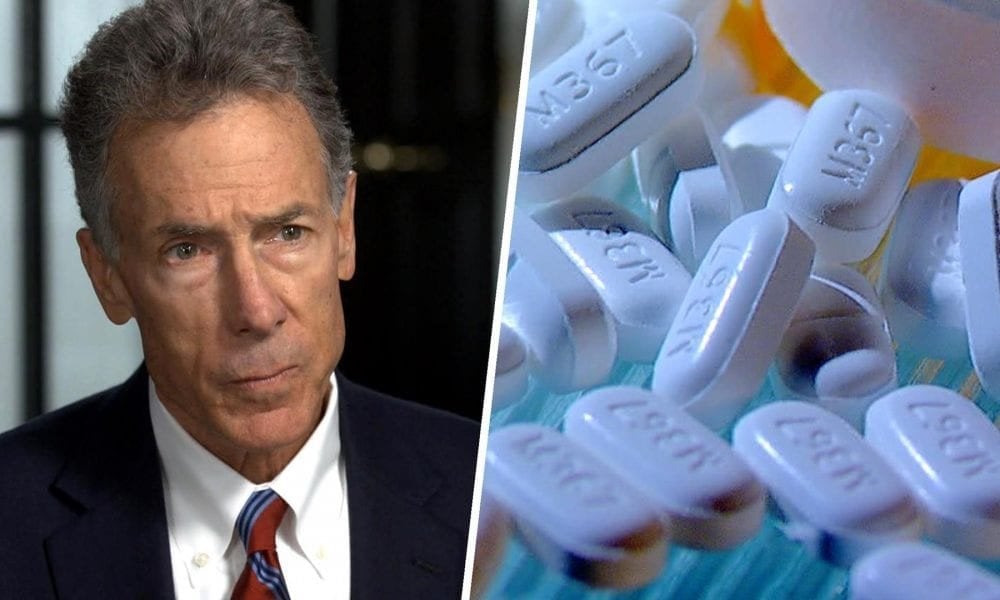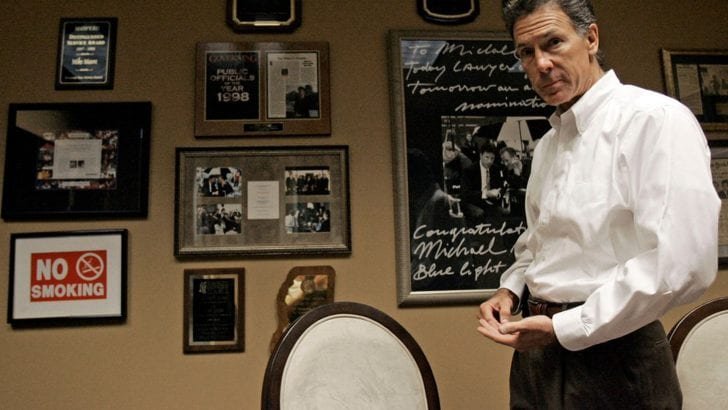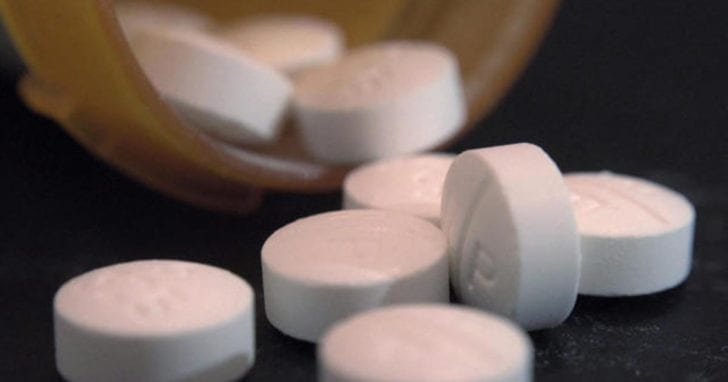
Lawyer Sensationally Sues Big Pharma Over Opioid Crisis

Former Mississippi attorney general, Mike Moore, is at it again. Having made his name as the lawyer responsible for bringing down Big Tobacco about two decades ago, he’s now bracing himself up for another big fight in the ring. His opponent? Big Pharma.

In his famous victory against 13 tobacco companies, he managed to produce a hefty $246 billion, 50-state settlement
Right after he emerged victorious, in a state suit where he was joined by numerous other elite private attorneys, he exclaimed that the moment was the “most historic public health achievement in history.”
He now plans to put to good use what he learned fighting the tobacco industry to confront pharmaceutical companies who he claims are to blame for the nation’s opioid epidemic. As a youngster, Moore, now 66, shared that he always wanted to be a priest, helping out people in whatever way he could. Having turned a leaf and embraced the law world, he still seems intent to right the wrongs in the world by working on the new case 7 days a week in order to leave a lasting impact.
Through his career, he has managed to recruit 23 state attorney generals. In addition to that, he has recently gone on record to call out President Trump to do more in terms of taking on the menace. In 2017, he called on the president to declare the opioid epidemic a national health emergency.
Different Strokes

A lawyer who stood by Moore during his winning fight against Big Tobacco, has recently joined his ranks in taking on state and local officials against Big Pharma
While Moore can be said to be optimistic about the matter, others, like Chip Robertson, a former chief justice in the Missouri Supreme Court is anything but. Robertson shared that many other well-intentioned people like Moore have tried doing the same and given up in the process. He shared that Moore is not scared to take on the big kahunas because of his firm conviction that he was doing the right thing.
According to the National Institue on Drug Abuse research, in the United States, opioid addiction has increased sixfold since 1999. Today, drug overdoses are said to result in at least 115 fatalities every day. An interesting stat is that about 75% of people who began using opioids in the 2000s cite that they were first introduced to the drugs in the form of prescription drugs.
As per Moore’s assertions, drug companies are “pretty evil” because they lied about the addictive properties of their drugs. He began his campaign way back in 2014 when together with his companions, they filed multiple suits against manufacturers of prescription opioids. Amazingly, his home state, Mississippi, was the first in line to sue the drug companies. The data shows that most of the suits name drop Purdue Pharmaceuticals, the makers of OxyContin, a powerful prescription painkiller, as a defendant. Interestingly, Purdue released a video in 1998 that claimed that the rate of addiction among patients after doctor treatment, was less than 1%.
Bone of Contention

Moore says that it was only by using an unorthodox approach, that he was able to floor Big Tobacco all those years ago. With Big Pharma, he believes that the doctor ordered the same prescription, and, he’s prepared to administer the dosage
The video campaign hit a raw nerve in Moore who went on a rampage citing that Purdue Pharmaceuticals was telling blatant lies. He painted them as liers because they went ahead to train their workforce about the perceived harmless effects of their products, despite the fact that no study has ever been done to back up those claims.
Taking a defensive route, Purdue spoke to members of the press and claimed that Moore’s assessment about their company was flawed because Oxycontin accounts for less than two percent of all opioid prescriptions. Instead, they deflected the crisis to the rising cases of illegal trafficking, heroin, and illicit fentanyl abuse as the main suspects.
Even with all his years in the legal profession, Moore has not yet grown accustomed to defeat. Having served 16 years as attorney general, he branched out to private practice in 2004 to specialize on conflicts between the government and major corporations.
More inAdvice
-
`
10 Valuable Career Lessons for the 20s That Pay Off in Your 30s
Entering your 30s often feels like a moment of reflection. For many, it’s a time when you realize how much the...
February 8, 2025 -
`
Auto Industry’s Ongoing Disruption – What’s Changing?
The auto industry is undergoing rapid change, with several key factors reshaping its future. A recent report by PwC highlights significant...
February 1, 2025 -
`
How to Safely Drive Away from Wildfires – Essential Tips
Wildfires are unpredictable and dangerous, often spreading rapidly with little warning. A video from the Los Angeles wildfires showed abandoned cars...
February 1, 2025 -
`
Can Your Car Keep You Safe During an Emergency?
Natural disasters such as wildfires, hurricanes, and floods can occur unexpectedly, leaving little time to prepare. In such situations, your car...
January 25, 2025 -
`
Tesla Reveals 2025 Model Y Juniper – Here’s What’s New!
Tesla has revealed the 2025 Model Y Juniper, a refreshed version of its best-selling electric SUV. This update enhances design, comfort,...
January 25, 2025 -
`
How to Check Transmission Fluid for Optimal Car Performance
Maintaining your vehicle’s transmission is just as essential as other routine car maintenance tasks like oil changes or tire rotations. Knowing...
January 18, 2025 -
`
Sutton Foster and Hugh Jackman Spark Romance on L.A. Date Night
Hollywood is abuzz with the latest photographs of Hugh Jackman and Sutton Foster, who appear to be confirming their romance during...
January 16, 2025 -
`
How to Fix Car Window Off-Track and Align It Properly
When your car window gets stuck or misaligned, it’s often due to an off-track issue. Learning how to fix car window...
January 10, 2025 -
`
How to Drive a Stick Shift: A Quick Guide for Manual Beginners
Driving a stick shift requires coordinating the clutch, brake, and accelerator to control a car with a manual transmission. Manual cars...
January 3, 2025















You must be logged in to post a comment Login